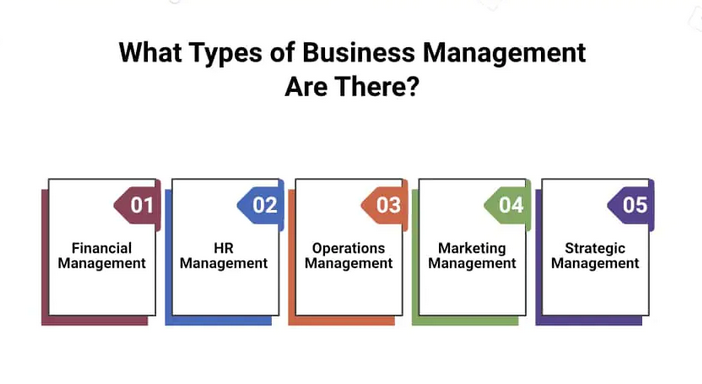Top 12 Skills Needed for Business Management
Table of Contents

- jaro education
- 24, March 2024
- 10:00 am
Business management skills comprise vital competencies that empower leaders to proficiently guide, motivate, coordinate, schedule, strategize, allocate resources, and address challenges. These skills are essential for managers as they handle responsibilities like aligning team objectives with organizational goals and advocating for new hires. The adaptability of business management skills goes beyond conventional people management roles, demonstrating their relevance across a spectrum of careers and industries. Whether occupying middle management positions or engaging in entrepreneurial pursuits, the utilization of business management skills remains a valuable asset for professionals in diverse fields.
In response to the growing demand for adept leaders in the business world, Chandigarh University, in collaboration with Jaro Education, offers a Master of Business Administration (MBA) Programme meticulously designed to cultivate these vital business management skills. This program is tailored for individuals aiming to elevate their careers, blending a state-of-the-art curriculum, expert faculty mentorship, and practical applications to prepare students for the challenges of leadership. Enrollees in the MBA program are endowed with the knowledge and tools necessary to unlock their leadership potential, positioning them for influential roles across various industries and sectors.
Types of Management Skills
Business Management skills can be broadly categorized into three primary types, each playing a crucial role in a manager’s overall competency:
1. Technical Skills
Technical skills encompass the proficiency in utilizing tools, software, and specific techniques essential for accomplishing objectives. It goes beyond mere knowledge of relevant technologies and extends to the application of strategies needed to successfully execute projects and attain goals. A manager’s ability to navigate and leverage technical aspects is fundamental to the effective implementation of tasks.
2. Conceptual Skills
Conceptual skills involve big-picture thinking, allowing managers to comprehend the broader context of their responsibilities and construct strategic action plans. This skill set enables managers to develop innovative ideas, formulate problem-solving strategies, and establish initiatives that contribute to the overall success of their department. Conceptual skills are instrumental in shaping a manager’s vision and fostering a comprehensive understanding of their role within the organization.
3. People Management Skills
Recognizing that people are key contributors to goal-oriented actions, people management skills are crucial for managers. Strong interpersonal skills are essential for motivating, leading, and collaborating effectively with others. Managers need to cultivate the ability to navigate interpersonal dynamics, build cohesive teams, and foster positive working relationships. The success of many managerial tasks hinges on the skillful application of people management skills, making them a cornerstone of effective leadership.
Top 12 Skills Needed for Business Management
Successful business management requires a diverse skill set to navigate the complex and dynamic landscape of the corporate world. Here are the top 12 skills essential for effective business management:
1. Leadership
Leadership skills are indispensable when it comes to steering teams towards success, establishing goals, and motivating employees to reach their highest potential. A robust leader not only provides direction but also serves as an inspiration, creating an environment conducive to individual and collective achievement.
A skilled leader can articulate a compelling vision, fostering a shared sense of purpose and dedication among team members. This ability to inspire and unite individuals is a catalyst for heightened performance and innovation within the team. Strong leadership skills empower managers to define objectives, allocate resources strategically, and make informed decisions to propel the team forward. Moreover, a leader’s capacity to instill confidence and trust in their team contributes to a positive work culture, promoting collaboration and resilience in the face of challenges.
Real-world Example: Indra Nooyi, former CEO of PepsiCo, stands out as an exemplary leader known for her strategic vision, commitment to diversity, and focus on sustainability. During her tenure, she successfully diversified PepsiCo’s product portfolio, prioritized healthier options, and championed sustainability initiatives. Nooyi’s leadership was marked by a clear and inclusive communication style, emphasizing a long-term strategy aligned with societal and environmental impact. Her commitment to “Performance with Purpose” showcased a balanced approach to business success and positive contributions to society. Nooyi’s legacy serves as an inspiration for leaders seeking to make a transformative impact with a visionary and inclusive leadership style.
2. Communication
Effective communication is an indispensable facet of successful leadership and organizational management. A business manager’s proficiency in communication ensures that everyone within the organization comprehends the overarching vision, strategic goals, and specific tasks, thereby aligning individual efforts with the collective mission.
Internally, clear communication catalyzes teamwork, reducing the likelihood of misunderstandings and promoting a cohesive work environment. Managers who prioritize transparent and open communication empower their teams to make informed decisions, navigate challenges, and contribute effectively to the organization’s objectives.
Real-world Example: Satya Nadella, as CEO of Microsoft, provides a real-world example of effective leadership communication. In 2014, facing challenges, Nadella articulated a clear vision for a “mobile-first, cloud-first” world. Internally, he communicated the need for cultural transformation, emphasizing collaboration and a growth mindset. Externally, Nadella reinforced Microsoft’s commitment to diversity and communicated strategic priorities, rebuilding trust with customers and investors. This example illustrates how impactful communication from a leader can drive organizational transformation and success.
3. Strategic Thinking
Strategic thinking is a pivotal skill in effective business management, encompassing the capacity to envision the big picture, make informed decisions, and formulate plans for the long-term success of the business. It goes beyond day-to-day operations, requiring a holistic perspective that considers the broader goals, challenges, and opportunities facing the organization.
Envisioning the big picture entails understanding the market dynamics, industry trends, and potential future scenarios that could impact the business. Strategic thinkers possess the foresight to anticipate changes and proactively position the organization to adapt and thrive in evolving environments.
Real-world Example: Reed Hastings, CEO of Netflix, provides a real-world example of strategic thinking by transforming the company from a DVD rental service to a global streaming giant. Hastings demonstrated visionary foresight by anticipating the shift to online streaming, made informed decisions with the introduction of the streaming service in 2007, and engaged in long-term planning by heavily investing in original content. This strategic evolution showcases how effective strategic thinking can lead to significant business success and adaptation to changing market dynamics.
4. Problem Solving
Problem-solving skills are a fundamental attribute for business managers, requiring the ability to address challenges, make decisions, and implement effective solutions on time. Managers with strong problem-solving skills can assess situations, identify root causes of issues, and formulate strategic solutions. This involves analytical thinking, where they analyze data and information to gain insights into the problem at hand.
Effective problem solvers also possess a keen understanding of the broader organizational context, allowing them to consider the implications of their decisions on various facets of the business.
Real-world Example: Alan Mulally’s leadership at Ford serves as a real-world example of effective problem-solving in business management. Faced with significant challenges, including financial losses and a lack of competitive small cars, Mulally implemented a global restructuring plan. His strategic decisions, including the mortgage of Ford’s assets before the 2008 financial crisis, proved crucial in avoiding bankruptcy. Mulally also fostered a culture of transparency and collaboration through regular meetings, enabling the company to successfully navigate challenges, return to profitability, and introduce popular, fuel-efficient models.

*www.proofhub.com
5. Decision Making
Decisiveness is a pivotal aspect of effective business management, encompassing the ability to make informed and timely decisions that propel the organization forward. Decisive decision-making involves a judicious evaluation of available information, consideration of potential outcomes, and a commitment to taking action.
Business managers must strike a balance between thorough analysis and the need for prompt decision-making, recognizing that delays can hinder progress and competitiveness.
Real-world Example: Tim Cook, CEO of Apple Inc., exemplified decisive decision-making during the COVID-19 pandemic. He swiftly closed retail stores, transitioned to remote work, and increased the production of in-demand products to meet consumer needs. Cook also allocated resources for COVID-19 relief efforts and donated masks to healthcare professionals. His actions ensured employee safety, adapted to market demands, and demonstrated leadership resilience amidst crisis.
6. Adaptability
Adaptability is a critical quality for effective business management, emphasizing the need for managers to be flexible and responsive in the face of the ever-changing business environment. Managers who embody adaptability demonstrate a willingness to embrace change, whether it be in response to technological advancements, shifts in consumer preferences, or alterations in market dynamics.
Being responsive to new trends and technologies is a core component of adaptability. Managers need to proactively identify emerging opportunities and challenges, staying ahead of the curve rather than merely reacting to changes. This proactive approach enables organizations to position themselves strategically and capitalize on evolving market conditions.
Real-world Example: Jeff Bezos’s leadership at Amazon serves as a prime real-world example of adaptability in business management. Under his guidance, Amazon evolved from an online bookstore into a global e-commerce giant. The introduction of Amazon Web Services (AWS), expansion into original content production with Amazon Prime Video, and the acquisition of Whole Foods Market demonstrate the company’s ability to pivot and succeed in diverse markets. Bezos’s adaptability and strategic decision-making have been instrumental in Amazon’s ability to innovate, diversify, and stay ahead of market trends, contributing to its remarkable success.
7. Financial Acumen
Financial acumen is a fundamental competency for effective business management, requiring a comprehensive understanding of financial principles, budgeting, and financial analysis. A solid understanding of financial principles involves grasping concepts such as revenue, expenses, profit margins, and cash flow. Managers with financial acumen are adept at interpreting financial statements, understanding key performance indicators, and making strategic decisions that impact the organization’s financial stability.
Budgeting is a crucial aspect of financial acumen, involving the creation and management of budgets to allocate resources effectively. Managers need to set realistic financial goals, plan for expenditures, and monitor budget performance to ensure that the organization operates within its financial means.
Real-world Example: Carlos Ghosn’s leadership at Nissan provides a real-world example of the critical role of financial acumen in business management. Faced with near-bankruptcy, Ghosn implemented a comprehensive restructuring plan, emphasizing cost-cutting measures, strategic alliances, and a focus on profitability. His adept financial acumen, evident in data-driven decision-making and strategic partnerships, played a pivotal role in Nissan’s remarkable financial turnaround, showcasing the importance of financial expertise in steering an organization to recovery and long-term success.
8. Project Management
Project management is a crucial competency for business managers who frequently oversee projects. This skill set is essential to ensure that tasks are completed on time, within budget, and to the desired quality. Effectively managing projects involves a combination of organizational, leadership, and communication skills to achieve successful outcomes.
Managers with strong project business management skills excel in planning, coordinating, and executing projects from inception to completion. This includes defining project objectives, developing timelines, allocating resources, and establishing milestones to track progress. Successful project managers are adept at breaking down complex tasks into manageable components and assigning responsibilities to team members.
Real-world Example: The construction of the Burj Khalifa in Dubai, led by project manager Mohamed Alabbar, serves as a real-world example of effective project management in business. Facing unprecedented challenges in terms of height and complexity, Alabbar demonstrated meticulous planning, advanced methodologies, and efficient execution. The Burj Khalifa was completed within the ambitious timeframe, meeting design specifications and quality standards.
9. Innovation
Innovation is a critical imperative for business managers, necessitating the encouragement and embrace of a culture of creativity and continuous improvement within the organization. Encouraging innovation involves creating a workplace culture that values and rewards creativity. Managers should promote an open exchange of ideas, provide platforms for brainstorming and collaboration, and recognize and celebrate innovative contributions from team members.
Embracing innovation also requires a willingness to adopt new technologies, methodologies, and processes that can enhance efficiency and effectiveness. Managers should be open to exploring emerging trends and disruptive technologies, facilitating their integration into the organization where appropriate.
Real-world Example: Elon Musk’s leadership at Tesla exemplifies the power of fostering innovation in business management. By encouraging a culture of creativity and embracing cutting-edge technologies, Musk has transformed the automotive industry. Tesla’s pioneering electric vehicles, energy storage solutions, and advancements in autonomous driving showcase the impact of innovation on reshaping traditional industries.
10. Negotiation Skills
Negotiation skills are indispensable in business management, playing a crucial role in interactions with clients, suppliers, and internal stakeholders. The proficiency in negotiation goes beyond simple deal-making; it involves the art of reaching mutually beneficial agreements while maintaining positive relationships.
In business management, negotiations can cover a wide range of scenarios, including contract discussions, pricing agreements, project timelines, and resolving conflicts within teams. A manager with strong negotiation skills possesses the ability to navigate these situations effectively, balancing assertiveness with collaboration to achieve optimal outcomes.
Successful negotiation requires effective communication, active listening, and a strategic approach. Managers need to clearly articulate their objectives, understand the needs and concerns of the other party, and find common ground for mutually beneficial solutions. This process involves the ability to analyze information, anticipate potential challenges, and adapt strategies to achieve the desired results.
Moreover, negotiation skills are essential for resolving conflicts and managing expectations. Managers often need to mediate disputes among team members or address differing viewpoints within the organization. The ability to negotiate skillfully allows managers to find resolutions that satisfy all parties involved and maintain a positive working environment.
Real-world Example: Steve Jobs’ negotiation skills were instrumental in securing an exclusive partnership with AT&T for the launch of the iPhone in 2007. Jobs leveraged the innovative features of the iPhone to negotiate favorable terms, including revenue-sharing agreements and marketing strategies. This strategic move not only contributed to the iPhone’s initial success but also set a precedent for exclusive carrier partnerships in the tech industry. The example highlights the impact of effective negotiation skills in shaping strategic partnerships and ensuring the success of groundbreaking products.
Conclusion
In summary, the exploration of business management skills has revealed a rich tapestry of essential competencies crucial for effective leadership. Beyond the routine tasks, the management landscape demands a dynamic amalgamation of strategic foresight, interpersonal finesse, and adaptive prowess.
Real-world examples, such as the strategic foresight of Reed Hastings and the negotiation prowess of Steve Jobs, serve as tangible illustrations of the transformative impact of honing these skills. As the business landscape evolves, the top 12 skills elucidated in this exploration emerge not merely as requisites but as strategic imperatives, guiding leaders towards sustainable success.
In essence, the journey through the intricacies of business management skills illuminates a profound truth – leadership is an art form, requiring a harmonious blend of diverse skills. As professionals embark on their managerial odyssey, the mastery of these skills becomes not just a pursuit but a dynamic and strategic pursuit towards leaving an enduring legacy in the ever-evolving world of management.







